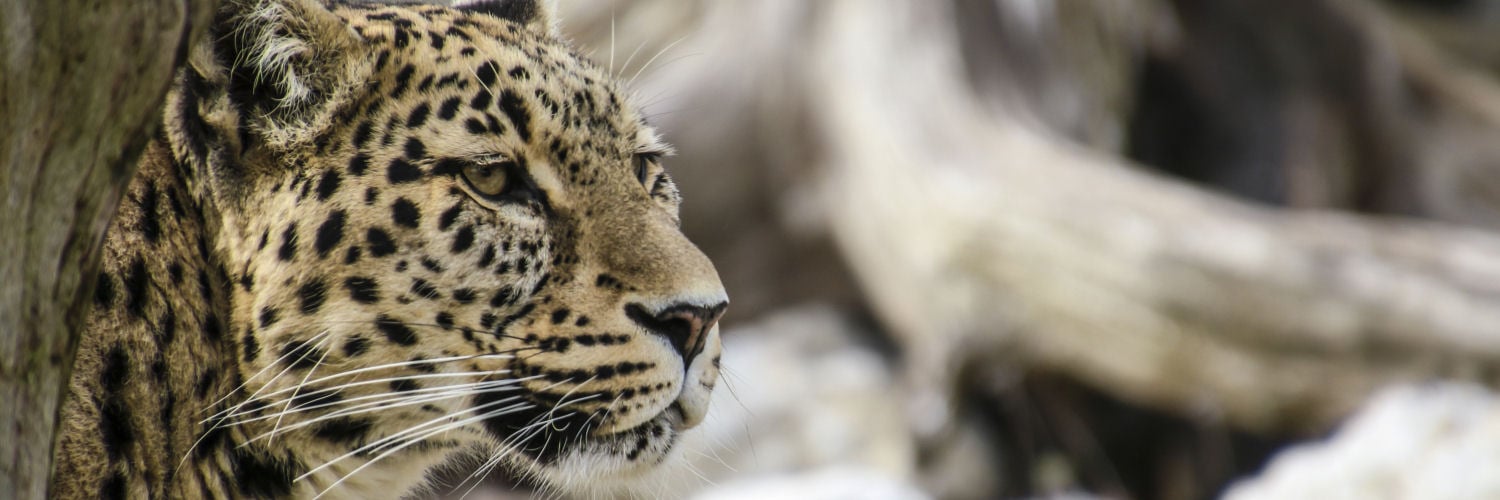Matt Larsen-Daw,
Head of Education, WWF-UK
Scientific reports, political speeches and media headlines are increasingly explicit in their messaging that climate change presents an existential crisis for our society and species, heightening anxiety in those engaged with environmental issues and further strengthening the barriers of denial or apathy in those who consider it a niche concern. With leaders currently convening at the UN Biodiversity Conference: COP15 in Montréal to discuss the importance of protecting and restoring our damaged natural world, it is also increasingly understood in the public sphere that nature loss is part of the same picture.
However, alongside the increased profile for these issues, the role of young people in fixing the problems of today to enable a brighter future is increasingly central to the narrative, bringing a dangerous weight of responsibility onto today’s young people, and an equally dangerous shift of responsibility away from those with the power to change the system today.
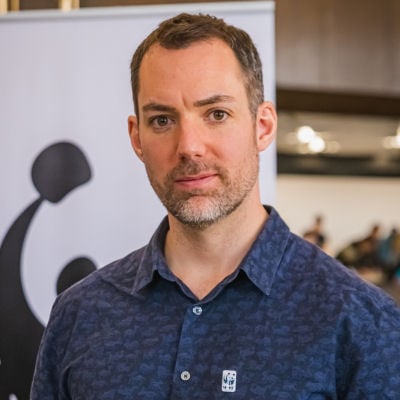
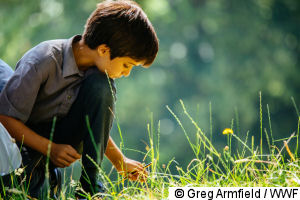 Young people should not be burdened with the responsibility of dismantling the destructive systems that currently fuel environmental disaster, but it is true that they will play a key role in defining the future. To do this, young people need to understand the causes of the current crisis, and the principles of sustainability that must underpin human civilisation in the future. What happens in the halls of power in the next few years will define the impact of our current environmental crisis, however what happens in classrooms and school grounds in the next few years will shape the future that emerges on the other side.
Young people should not be burdened with the responsibility of dismantling the destructive systems that currently fuel environmental disaster, but it is true that they will play a key role in defining the future. To do this, young people need to understand the causes of the current crisis, and the principles of sustainability that must underpin human civilisation in the future. What happens in the halls of power in the next few years will define the impact of our current environmental crisis, however what happens in classrooms and school grounds in the next few years will shape the future that emerges on the other side.
Much discussion of the role of schools in tackling the climate crisis rightly centres around climate education. This is extremely important, and it feels both vital and inevitable that curricula should evolve with the times and reflect the biggest issues of our time. However it is equally important that nature is given the same attention as climate change. Climate change is a huge existential issue, but ultimately is a single symptom of the underlying problem – unsustainable thinking and behaviour at the heart of our society, resulting from a disconnect with the natural systems of our living planet. A sustainable future will depend on solving the ‘triple challenge’ of addressing climate change, protecting, and restoring nature, and finding sustainable ways to feed all humans. Understanding how our world and its climate has been gradually shaped by the evolution of life, leading to the stable conditions in which human civilisation has been able to develop, is key to understanding the issues we now face and how we can achieve this sustainable future.
The Natural History GCSE can be a huge step forward in positioning this fundamental understanding of our dependence on nature at the heart of education. Its impact, however, will depend on two things – the ripples of change it causes across all subjects and levels of education, and the connections made between the subjects and concepts in the GCSE, and real-world action and experience for students.
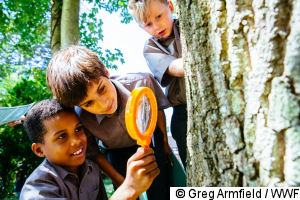 We all live our day-to-day lives in a landscape, and therefore in an ecosystem. Our day-to-day survival and well-being is intimately tied up with the health of the natural world, and all its vital qualities and processes are available for us to witness and explore our local environment. This huge resource for education, skill-building and values development is under-used in today’s UK education system, and any effort to build environmental awareness and sustainability skills through education should look for opportunities to learn in and through nature – not just about nature. If the new GCSE can encourage and enable this, it could drive a wider cultural change that transforms the role of nature in schools.
We all live our day-to-day lives in a landscape, and therefore in an ecosystem. Our day-to-day survival and well-being is intimately tied up with the health of the natural world, and all its vital qualities and processes are available for us to witness and explore our local environment. This huge resource for education, skill-building and values development is under-used in today’s UK education system, and any effort to build environmental awareness and sustainability skills through education should look for opportunities to learn in and through nature – not just about nature. If the new GCSE can encourage and enable this, it could drive a wider cultural change that transforms the role of nature in schools.
Through this real-world experience of nature and application of sustainability schools can drive positive change now, as well as helping put in place the foundations of future change. The Natural History GCSE could be designed to support this important role in driving change across the education sector and beyond. When schools engage communities in celebrating nature and model sustainable practice, it can inspire and equip whole communities to make positive changes.
For young people, school is not just a place where they are taught, gain knowledge and skills through structured lessons. School is where they see their friends, discuss interests, develop values, share food, form opinions and priorities, and learn what it means to be part of a community and a system. Every aspect of experience at school contributes – the buildings, the grounds, the culture and the opportunities to gain new experiences. If a school embodies the principles of respect for nature and sustainability, as well as teaching it in certain lessons for those on certain courses, students are able to see, feel and apply sustainability rather than just learning about it.
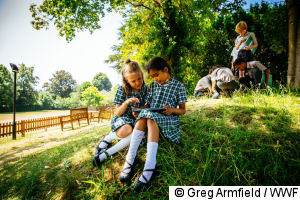 There is already huge amounts of evidence that building nature connection in young people leads to increased understanding and engagement with environmental causes and sustainable behaviours later in life, as well as bringing them immediate health and resilience benefits. Experiencing nature first-hand, with opportunities to freely explore and connect to the natural world, and discover the personal benefits of doing so, could and should be a vital part of school experience. Evidence also shows, however, that nature is not equally accessible to all – and that low income and minority communities are more likely to miss out on the benefits of time in nature, and opportunities to build nature connection.
There is already huge amounts of evidence that building nature connection in young people leads to increased understanding and engagement with environmental causes and sustainable behaviours later in life, as well as bringing them immediate health and resilience benefits. Experiencing nature first-hand, with opportunities to freely explore and connect to the natural world, and discover the personal benefits of doing so, could and should be a vital part of school experience. Evidence also shows, however, that nature is not equally accessible to all – and that low income and minority communities are more likely to miss out on the benefits of time in nature, and opportunities to build nature connection.
Schools can and must act as levellers of access to nature, and thus help to ensure that the vital work to shape a sustainable future and restore our natural world involves everyone. If the process of designing and launching the Natural History GCSE can help position nature at the heart of the school experience for all students in all schools – and not just those undertaking the qualification – it could help to lay the foundations of a more sustainable future.
Matt Larsen-Daw
Matt Larsen-Daw is Head of Education for WWF-UK, focused on leveraging the huge potential of education and schools to shape a sustainable future. Matt previously designed and delivered the global education programme around the Our Planet series and David Attenborough: A Life On Our Planet. Matt sits on the Sustainable Schools Coalition that leads the Let’s Go Zero 2030 campaign, and convened 20 cross-sector organisations to collaborate on a COP26 schools engagement programme. Matt is also Chair of the socio-educational charity HVP Nepal-UK.
Keep up to date with our proposed GCSE in Natural History and other Cambridge OCR Natural History news by signing up our email newsletter and updates. You can read back issues of our Natural History newsletter here.
